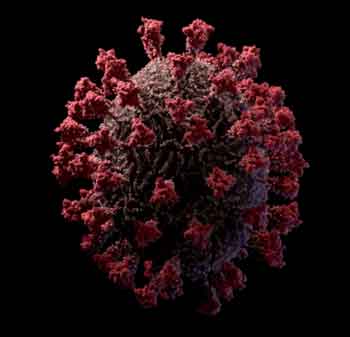Abril de 2020
Systems thinking to solve complex problems, in our societyAlfredo Ramos Vázquez
 aramosvr@gmail.com
aramosvr@gmail.com
Nowadays, we are having terrible times by a new virus known as SARS-CoV-2 (COVID-19), which is affecting countries from all over the world, and sooner or later, we have to deal with other complex problems like climate change, extinction, water depletion, pollution, among others. For that reason, it is essential to work with systems and interdisciplinary groups through systems thinking; because, as we have seen everything is affected by these problems. For example, in these days, this pandemic is making many economic and social problems, and the only way to solve them is by using this view.
If we do not make these changes, we will suffer the consequences. For example, different experts believe that politicians have not taken the right decisions, and for that reason, many persons have been infected by SARS-CoV-2 (COVID-19), in these days. This new pandemic has shown us that we are not prepared to deal with complex problems, due to everything has been wrong from the beginning, how is possible that this new disease outbreak comes from a city, in which some citizens trade and consume wild animals, besides governments from different nations did not see the magnitude of this problem, and finally, most countries reacted late and separately, even when it is a pandemic that affects all nations.
For many years, we have tried to solve our problems by simple solutions, and most of the time, the results have been inaccurate since only reduce or delay the problems, and in some cases, these have become worse. So, it is time to create better solutions we need new ways and institutions and work with multidisciplinary groups which they have to offer solutions after making system analysis and simulations with different tools and methodologies. Unfortunately, our institutions do not work in this sense, and should not continue in this way.
Evolution is something that characterizes humankind, so it is time to improve our society and institutions. For example, now our institutions just have professionals who are experts in a particular discipline, but we need experts that working with systems, and interdisciplinary groups to understand our reality. Besides, it is essential to make multidisciplinary groups that visualize the whole system and take smarts decisions from villages to nations. We must not let any more these decisions to politicians or leaders who do not use systems thinking.
For many years, nations have taken bad decisions, in particular developing countries, due to corruption, greediness, and incompetence from some of their members. So, it is time to change this situation, first at all, by choosing the best professionals in their areas who use systems thinking, second at all, by creating multidisciplinary groups that take the control and use the best tools for planning and managing resources. Besides, they have to make projections for the future about how to transit for better practices.
The only way to reach sustainability having the enormous problems that we face now, it is by working with professionals from many different areas which include sociologist, biologist, ecologist, economics, climatologist, mathematicians, engineers and so on, whom must make decisions about using natural resources, in a sustainable way, through different tools which involve industrial ecology, circular economy, industrial symbiosis, reverse logistic, recyclability, responsible consumption, biomimicry and so on.
These multidisciplinary teams have to make simulations and create scenarios to understand complex problems and make good decisions. We urgently need these groups which work according to the best science practices, and their resolutions and advice must be considered by the government immediately. These groups have to work independently from politicians to avoid corruption, and they have to receive enough resources. So, science and ethic must be essential in these interdisciplinary teams, because we must create a sustainable world.
Visitas: 1070